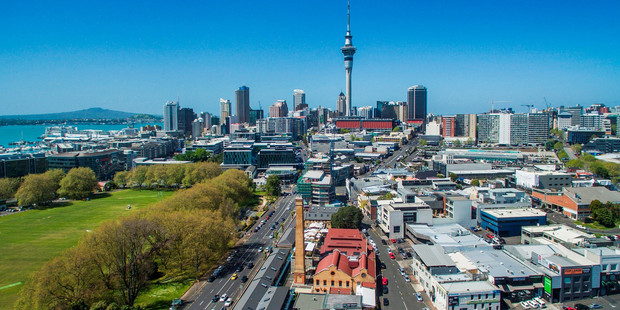
Parking for an eight-hour working day in Auckland's CBD may rise to $63. Photo / File
Thursday Apr 28, 2016
Auckland city workers and inner-city dwellers could be paying more than $60 a day to park on the CBD streets from June.
As part of its regular review, Auckland Transport is planning to increase its inner city rates in response to the increased demand.
The central area, which is at present priced at $4/hour for the first two hours, is proposed to increase to $4.50/hour for the first two hours then $9/hour for every subsequent hour.
For an eight-hour working day this would hit $63.
The city fringe zones, which are at present priced at $2/hour and $3/hour for the first two hours, would rise to $3/hour across both zones for the first two hours and would cost $6 for every subsequent hour.
This would cost $42 for an eight-hour working day - a significant price increase from the present $16/day in the lower-priced areas around Wynyard Quarter, some streets around Sale St and Vector Arena.
AT said as part of its 2015 policy it had implemented a "demand responsive pricing" for parking management.
"Prices for on-street parking will be set at levels that ensure people can find a carpark most of the time within a short walking distance of their destination."
This meant that if demand for parking decreased then so too would prices and the same would apply in reverse.
AT said since the last City Centre Parking Zone survey in 2013 there had been an increase in the average peak occupancy, going up from 73 per cent to 88 per cent.
In the inner city zones, average peak occupancy was 94 per cent, whereas in the outer areas it was 84 per cent.
AT said there had also been a 10 per cent reduction in the number of spaces between the two survey periods, from 3134 spaces in 2013 to 2821 in 2015.
This was because of street upgrades in the Wynyard Quarter and the introduction of bus and cycle lanes.
The organisation promised parking would be regularly monitored to ensure prices resulted in an appropriate level of occupancy.
Parking in cities across the world

Employers and Manufacturers Association chief executive Kim Campbell told Newstalk ZB the harsh reality is, in most cities across the world people don't drive in and park.
He said people would need to make a choice if they can afford it.
Mr Campbell added when people took up parks all day, it meant there was no short-term parking for shoppers.
He said it was vital Auckland continued to improve its public transport and bike-friendly infrastructure.
Auckland commuters have expressed their frustration at a rise in parking prices in the inner city despite the less than adequate public transportation links to the outer suburbs.
Bob Davis, 78, from Greenhithe said public transportation was simply not an option for him coming in from the shore.
He said there were limited parking options for him at the bus terminal at Constellation Drive and Albany, there was no rail service and the ferry only ran early in the morning and from mid-afternoon.
"Until these issues are resolved I have no option but to take my car into the city."
Another reader described the situation as a "major crisis".
"Public transport is not efficient and not possible for many of us who are starting work at 7.30am or 8.00am."
He said the council body's move to push up prices had reduced competition and led to private parking companies running many of the city's parking buildings to similarly up their prices.
CBD parking
• Inner-city zone: $4.50/hour for the first two hours $9/hour for every subsequent hour• Fringe zone: $3/hour for the first two hours $6/hour for every subsequent hour
AT's pricing formula
• When average occupancy is less than 50 per cent the price will be reduced by up to 25 per cent of the hourly rate with no minimum price.• When average occupancy is 50-70 per cent, the price will be reduced by up to 15 per cent of the hourly rate.
• When average occupancy is 70-90 per cent, the price will not change.
• When average occupancy is 90-100 per cent, the price will be increased by up to 15 per cent of the hourly rate.
No comments:
Post a Comment